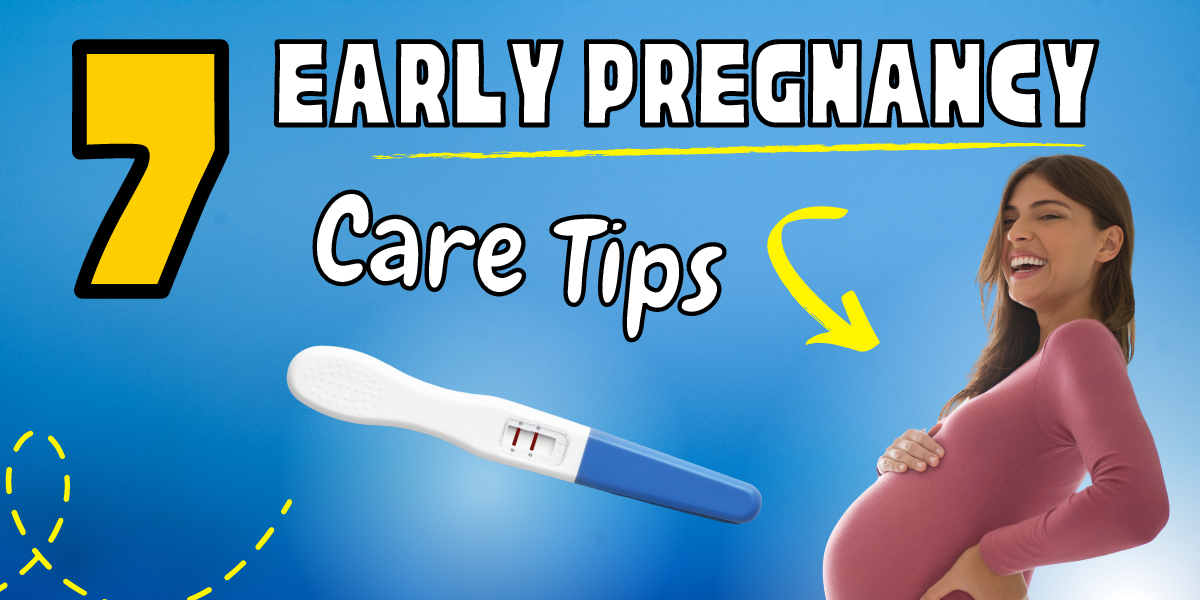Congratulations on your pregnancy! The early stages of this journey are crucial not only for your baby’s development but also for setting the tone of your health over the next several months.
Whether it’s your first time or you’re a seasoned parent, these early pregnancy care tips will help you navigate this exciting chapter with confidence. From nutrition to lifestyle adjustments, here’s what you need to know for a healthy pregnancy beginning.
Early Pregnancy Care Tips
Understanding Early Pregnancy

Overview of the First Trimester:
The first trimester is a period of rapid development for your baby, during which all major organ systems begin to form. It spans from conception to 12 weeks and is critical because the foundations for the future health of the baby are laid here.
Key Milestones in Early Development:
Important milestones include the formation of the brain, spinal cord, heart, and other vital organs. By the end of the first trimester, your baby will have fingers, toes, and visible facial features.
Nutritional Needs

Importance of Balanced Meals:
Eating a variety of healthy foods is crucial to support the baby’s growth and your well-being. Focus on fruits, vegetables, whole grains, lean proteins, and dairy to ensure a balanced intake of nutrients.
Supplements: Folic Acid, Iron, Calcium, and Vitamins:
Folic acid helps prevent neural tube defects, while iron supports blood production and prevents anemia. Calcium is vital for bone development, and a prenatal vitamin can help cover any nutritional gaps.
Medical Care and Checkups

Scheduling Your First Prenatal Visit:
Ideally, schedule your first visit around the 8th week of pregnancy or as soon as you find out you’re pregnant. This initial appointment will set the tone for prenatal care going forward.
What to Expect During Early Checkups:
Expect a thorough examination, including medical history assessment, blood tests, and possibly an ultrasound to confirm the pregnancy and check the baby’s heartbeat.
Screening Tests and Ultrasounds:
These are crucial for assessing the health of the fetus and can help in detecting any early issues that may need intervention.
Lifestyle Adjustments

Avoiding Harmful Substances (Alcohol, Tobacco, and Certain Medications):
Abstaining from alcohol, quitting smoking, and avoiding certain medications are vital for preventing developmental issues and complications in pregnancy.
Safe Exercise Routines:
Moderate exercise, such as walking or prenatal yoga, can help maintain your health and prepare your body for childbirth, unless contraindicated by your doctor.
Stress Management Techniques:
Practices like meditation, deep breathing, and prenatal massage can help manage stress levels, benefiting both you and the baby.
Emotional Well-being

Coping with Mood Swings and Anxiety:
Hormonal changes can lead to emotional upheavals. Recognizing this and developing coping mechanisms can help maintain emotional health.
Support Systems: Partner, Family, and Friends:
Lean on your partner, family, and friends for emotional support and practical help as you navigate early pregnancy.
Connecting with Healthcare Professionals or Counselors:
If emotional challenges become overwhelming, seeking help from professionals can provide the support you need.
Preparing for the Months Ahead

What to Read and Research:
Educate yourself about pregnancy, childbirth, and parenting by reading books, reliable online resources, and attending prenatal classes.
Organizing Your Home and Life for the Baby:
Start planning how you’ll adjust your living space and schedule to accommodate the new baby, including nursery preparations and maternity leave.
Deciding When to Announce Your Pregnancy:
This is a personal decision, but many choose to wait until the end of the first trimester when the risk of complications decreases.
FAQs
Common Questions About Early Pregnancy Care:
Include answers to questions like, “What should I eat during the first trimester?” and “What are the signs of a healthy pregnancy?”
Addressing Myths and Misconceptions:
Dispel common myths such as eating for two, and clarify misconceptions about exercise and sexual activity during early pregnancy.
Wrap-Up: Embracing Your Pregnancy Journey
Encouragement for the Weeks Ahead:
Remind readers to embrace the journey of pregnancy, despite its challenges. Encourage them to take care of their health and enjoy each moment as they prepare to meet their new baby.
The Importance of Self-Care and Enjoying the Process:
Stress the importance of self-care and finding joy in the little milestones of pregnancy, such as feeling the first kick or seeing the baby during an ultrasound.
Conclusion:
The first trimester is a time of immense growth and change, not just for your baby but for you as well. By taking the right steps early on, you can lay a strong foundation for a healthy pregnancy. Remember, each day brings you closer to meeting your little one. Embrace this special time and take good care of yourself and your growing baby.

